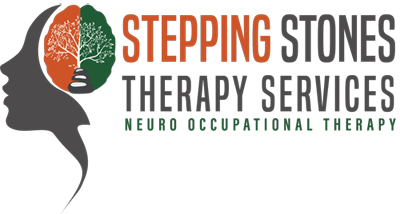After a brain injury or period of illness, many people describe feeling mentally exhausted. You might find it harder to concentrate, plan your day or make decisions. Tasks that once felt simple now take longer and leave you feeling drained. What you may be experiencing is cognitive fatigue, and it’s closely linked with what’s commonly called brain fog.
If you’re struggling with cognitive fatigue after illness or injury, you don’t have to face it alone. At Stepping Stones, I offer one-to-one support to help you feel clearer, more capable and more like yourself again. Read more about Stepping Stones or contact me to talk through what support might help you right now.
Understanding Cognitive Fatigue and Brain Fog
Cognitive fatigue is mental tiredness that builds up after thinking or focusing for a period of time. It’s not about being lazy or unmotivated. It’s just how the brain copes after trauma or illness.
You might notice:
- Trouble concentrating
- Feeling foggy or slow when thinking
- Difficulty organising tasks
- Needing longer to recover after mental effort.
Brain fog is often used to describe this mix of experiences. It can feel like you know what needs to be done but can’t quite think clearly enough to do it.
How the Brain and Cortex Are Affected
Cognitive fatigue often comes from changes in how the brain, especially the cortex, processes information. The cortex helps with memory, decision-making, focus and planning. After injury or illness, these cognitive processes may become slower or less efficient.
You might still be able to do many of the same tasks; they just take more effort or leave you feeling drained afterwards.
Effects on Performance and Daily Life
Cognitive fatigue can affect everything from getting dressed to managing a workday. Your vigilance may dip, you may forget things more easily or feel that small tasks take much longer. These effects on performance can knock your confidence and make it harder to keep up.
Recognising the Symptoms of Cognitive Fatigue
The symptoms of cognitive fatigue are not always obvious to others, but they can be deeply felt. You might:
- Struggle to start or finish tasks
- Avoid making decisions
- Find noise, light or conversation overwhelming
- Need to lie down or nap after doing very little.
Being able to name and understand these symptoms is the first step to managing them.
How Occupational Therapy Helps
Occupational therapy helps you make sense of what’s happening and find practical ways to manage daily life. We work with you to identify triggers, pace your energy and develop strategies that protect your mental stamina.
The Role of Sleep and Time Management
Sleep plays a big part in how well you can think and focus. If your sleep is disrupted, cognitive fatigue may be worse. We’ll help you look at sleep patterns, rest breaks and routines that allow your brain to recover.
Time management is another key part of recovery. Using tools like alarms, checklists or task timers can reduce stress and keep your day feeling more predictable.
Supporting Motivation and Mental Energy
Cognitive fatigue can make even enjoyable tasks feel like too much. We help you reconnect with activities that matter to you and find ways to approach them in manageable chunks. Supporting your motivation is just as important as managing tasks.
Considering Psychophysiology and Health
Fatigue is physical, mental and emotional. It often reflects a mix of factors, including your overall health, how your nervous system responds to stress and how your brain is working to heal. This connection between body and mind is sometimes referred to as psychophysiology, and it’s part of how we plan your support.
Working with Other Health Professionals
Cognitive fatigue can be complex. That’s why we may work closely with other professionals as part of your support network.
These may include:
- Doctors, who can help with medical causes or medication reviews
- Occupational health practitioners, who support you at work
- Allied Health Professionals, such as physiotherapists and speech therapists, who can assist with physical recovery and communication
- Mental health specialists, if anxiety or low mood are contributing to fatigue.
This joined-up approach helps us consider both your physical and psychological needs — sometimes referred to as psychophysiology — so your support is truly holistic.
Practical Support at Home and Work
Occupational therapy doesn’t stop at advice. It’s about putting support into action. We help you build strategies that fit your real life, whether you’re at home, returning to work or somewhere in between.
This might include:
- Using tools like timers, calendars or reminders to manage time
- Breaking tasks into smaller steps so they feel less overwhelming
- Planning rest after mentally heavy activities
- Exploring realistic ways to return to work, with or without changes to your role.
Over time, these small steps can reduce stress and help you feel more in control of your day.
When to Seek Help
If you’re struggling with memory, focus or fatigue — and it’s starting to affect your daily life — it’s worth talking to someone. You don’t need a formal diagnosis to benefit from support. Occupational therapy can help even if symptoms feel mild or hard to explain.
At Stepping Stones, I offer home-based and remote sessions tailored to your life, goals and health. I understand how personal this journey is, and we take it one step at a time — always at your pace.
Let’s Talk
If you’re feeling overwhelmed by cognitive fatigue or brain fog, support is available. You don’t have to figure this out on your own.
I offer a free 15-minute phone consultation to talk through your situation and explore what might help. Whether you’re at home or thinking about work, we can build a plan together.

